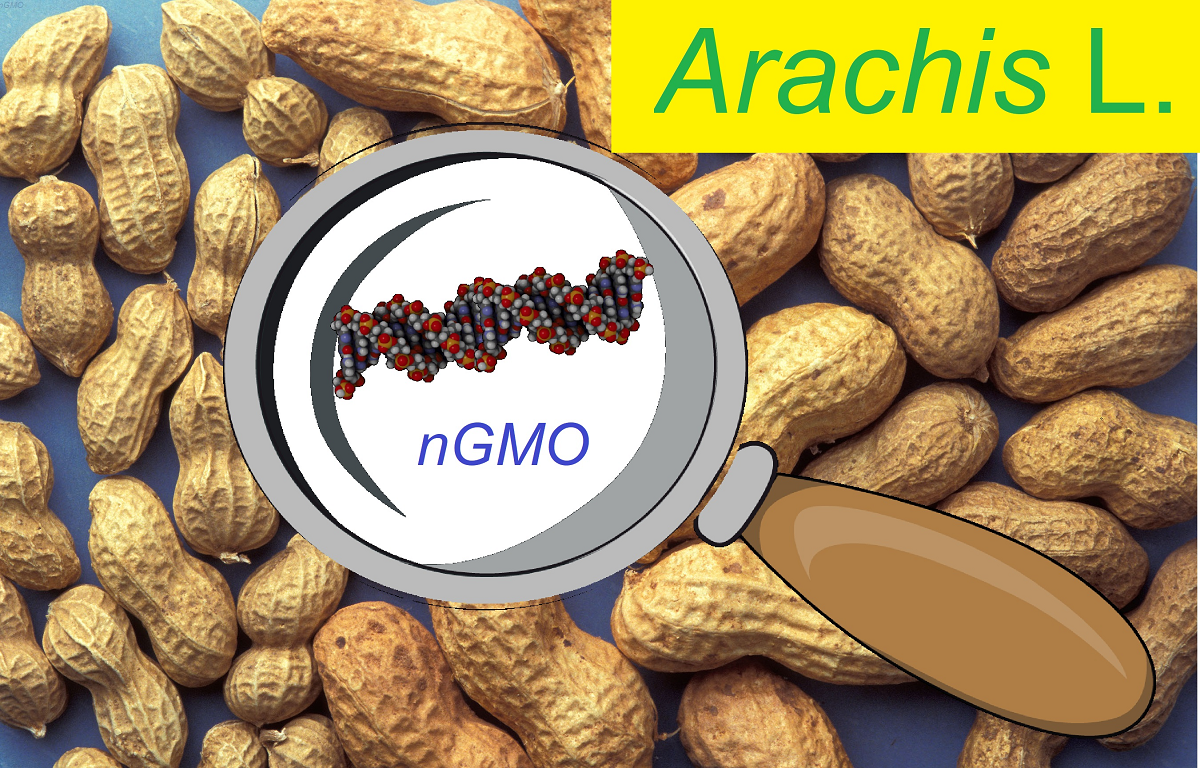Geneticists from St Petersburg University find out how peanuts became a natural GMO
Scientists from St Petersburg University, as part of a research team, have identified a gene that enables peanuts to become a natural GMO and adapt to changing environmental conditions.

A genetically modified organism (GMO) is a plant, animal or microorganism that has had foreign genes inserted into its genome. This can be done for a variety of purposes, such as increasing yields, protecting against pests, improving flavour or reducing the likelihood of disease.
The research findings are published in the scientific journal Biology.
There is a societal belief that GM foods are dangerous because they are considered unnatural. However, as scientists have discovered, GMOs are not an exclusively artificial phenomenon. In nature, there are also natural GMOs. These are plants that in the process of evolution have acquired foreign genes with the help of the same bacteria that are used in laboratories to create GMO products.
Scientists from St Petersburg University compiled the list of GMOs created by nature, which includes: tobacco, toadflax, sweet potato, peanuts, cranberries, hops, and tea. According to the researchers, about 7% of dicotyledons contain traces of such DNA modifications. Many have been characterised in detail and scientists have been able to explain why they are naturally occurring GMOs. For peanuts, however, the question remained open.
Geneticists at St Petersburg University have been studying natural GMOs for a long time. A year ago, for example, the University scientists found out what advantages tobacco have gained by becoming a natural GMO. Tatiana Matveeva also talked about natural GMOs in one of the episodes of St Petersburg University’s popular science podcast "Heinrich Teraherz".
"We have analysed all the peanut DNA sequences available to us in nucleotide sequence databases, as well as a number of lines from the collection of the All-Russian Institute of Plant Genetic Resources. Thus, we have been able to understand which genes in peanut have been preserved and, most importantly, which are responsible for the genetic modification. We have found that some genes have been preserved since the genetic transformation of their ancestral forms, while others have been lost in the process of evolution and only traces of them remain," said Tatiana Matveeva, Professor in the Department of Genetics and Biotechnology at St Petersburg University.
According to Professor Matveeva, an example of a conserved gene found in almost all peanut species is cucumopine synthase. This gene, which is produced in the roots of plants, showed different activities in different peanut species. It is likely that cucumopine synthase is responsible for the adaptive functions of peanuts that have enabled them to survive successfully during evolution.
As part of the study, the geneticists from St Petersburg University also discovered that a further 18 peanut species are naturally occurring genetically modified organisms. This discovery could help agriculture in the production of peanut crops or the control of disease in GM crops. It also might be useful in planning breeding schemes aimed at transferring valuable traits from wild species into cultivated peanuts.
St Petersburg University, the oldest university in Russia, was founded on 28 January (8 February) 1724. This is the day when Peter the Great issued a decree establishing the University and the Russian Academy of Sciences. Today, St Petersburg University is an internationally recognised centre for education, research and culture. In 2024, St Petersburg University celebrates its 300th anniversary.
The plan of events during the celebration of the anniversary of the University was approved at the meeting of the Organising Committee for the celebration of St Petersburg University’s 300th anniversary. The meeting was chaired by Dmitry Chernyshenko, Deputy Prime Minister of the Russian Federation. Among the events are: the naming of a minor planet in honour of St Petersburg University; the issuance of bank cards with a special design; and the branding of the aircraft of the Rossiya Airlines to name just a few. To mark the 300th anniversary of St Petersburg University, a postage stamp depicting the Twelve Collegia building and the monument to Count Sergey Uvarov was issued. Also, a Soyuz rocket bearing the symbols of the University was launched from the Baikonur Cosmodrome.
By the decision of the Governor of St Petersburg Alexander Beglov, 2024 is a year of the 300th anniversary of St Petersburg University in St Petersburg. On the day of the University’s 300th anniversary torches were lit on the Rostral Columns on the Spit of Vasilyevsky Island. St Petersburg University flags were raised on the Palace Bridge. The city public transport was decorated with the University’s symbols. During St Petersburg’s City Day celebrations in May 2024, St Petersburg University acted as a participating venue. Additionally, the University has launched a website dedicated to the anniversary. The website contains information about outstanding University staff, students, and alumni; scientific achievements; and details of events held as part of the celebration of the 300th anniversary of the University.

